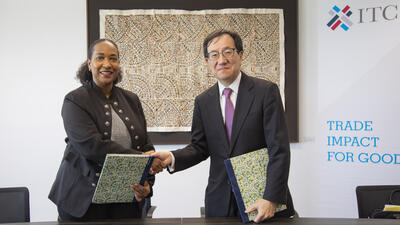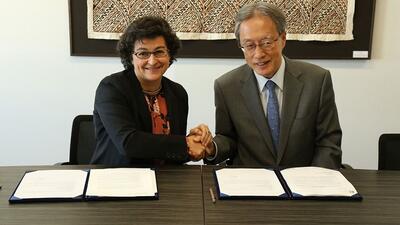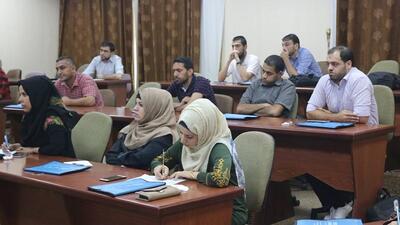
ITC head visits Japan to promote SME development in Africa (en)
The International Trade Centre’s (ITC) Executive Director, Arancha González, is visiting Tokyo this week to highlight the considerable scope for Japanese businesses to do more to promote growth and development in Africa by linking up with the continent’s small and medium-sized enterprises (SMEs).
During her 10-12 December visit, Ms. González will meet with a range of senior Japanese trade and development cooperation officials as well as leading members of the Japanese business community. She will also meet with think-tanks and research institutes to share recent ITC findings on SME trade integration.
Speaking ahead of the trip, Ms. González said: ‘Japan is already a leader when it comes to trade-related development aid. What we would like to see more of is Japanese businesses connecting with SMEs in Africa. Building long-lasting links between businesses would make Africa’s development more sustainable.’
At the centre of Ms. González’s visit will be ITC’s Ethical Fashion Initiative, which connects the top end of the global fashion business with artisans from marginalised communities in Africa and Haiti.
ITC already works with Japanese fashion houses, including Isetan, the upmarket department store, and United Arrows, the fashion label, and is now looking to scale up collaboration with the country’s private sector. During her stay, Ms. González will meet with the heads of both Isetan and United Arrows.
In her discussions with the Japanese business community, Ms. González will explore how they can provide even greater support to broad-based growth, employment, and development in Africa by establishing links with SMEs there. They will also look at how Japanese companies looking to expand to developing countries can take better advantage of the services that ITC has to offer, for example through its market-intelligence tools, which cover market conditions and trends for more than 5,300 products in over 220 countries and territories.
When Ms. González meets with officials from the Japanese development policy community, talks will likely centre around follow-up work to the 2013Tokyo International Conference on African Development (TICAD), at which Japan and over fifty African governments placed trade, investment, regional integration, private sector-led growth, and SMEs at the top of their shared agenda.








